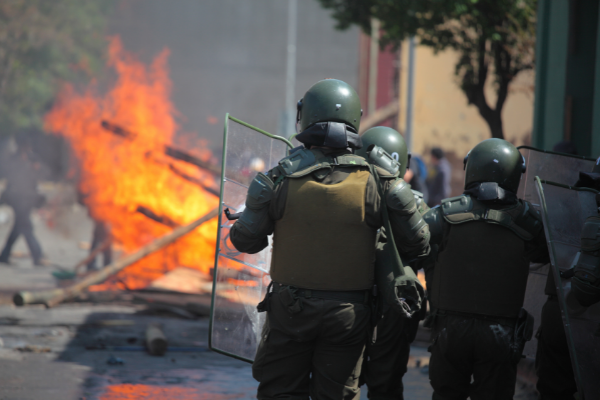
Rejoicing Or Complaining Mobs; Treat Them Equally
- Category: Governance
- Date 13-11-2005
- 518 views
Last Sunday, we observed that this season is for crowds. We return to this important element – multitudes of people in Tanzania’s streets and other public places – most of the time disrupting order and causing inconvenience to other serious men and women going about their normal business. More so during this political climate when swarms of jarring souls remain a common mark all around as we prepare to cast our ballots in the December 18th polls if they do not get delayed once again, hopefully.
Perhaps we have got the Zanzibar brawling scenarios at the back of our minds. There were considerable riots and run-ins during the campaigns as well as subsequent to the voting itself, whereby the Civic United Front (CUF), which got 46.1 percent, vowed to launch massive demonstrations against the poll results that returned President Amani Abeid Karume to power with 53.2% for his ruling Chama cha Mapinduzi (CCM) – the Party of the Revolution.
Street mobs are not to be attributed to remonstrating groups only. People who have reason to celebrate too find occasion to candidly express their feelings and emotions in a public demonstration, to rejoice over an achievement. It should be expected that once the winner of an election has been proclaimed, the normal reaction would be for the supporters of the winning candidate to pour into streets in jubilation.
In addition, if there is such a thin margin between the winner and the runner-up as was the case in Zanzibar of late, it is just as normal for the supporters of the losing party to respond to the announcement of election results by taking to the streets in protest against the undesirable poll outcome.
The major area under discussion is that, whether they are celebrating or protesting, the masses are always very similar and deserve to be handled by the same token. There is no need to confront election protestors on the concourse with truncheons, tear gas, water canons and live bullets, while at the same time their rivals, commemorating victory, are favoured with monotonous kindliness and supreme licence.
A complaining crowd can be as undisruptive to public peace and order as a rejoicing throng can be so destructive.
Important to note however is that characteristically, a crowd does not think. When the happy ones are singing and dancing or the sad ones are suppurating and straying along highways, they are driven by the same power: emotion! There is no serious effort attached to the necessary mental alertness.
Each individual shouts because everyone around them is shouting. When they run, it is not because they want to keep time or to get anywhere quickly, but because everyone in the multitude is hurrying to nowhere.
For that reason, the police need to give equal protection to both the parties on the boulevard, understanding that either group can be peaceful or unhelpful depending on the circumstances. When people demonstrate out of frustration and anger, they are expressing legitimate human feelings, necessarily.
This does not make them eligible for beating, molestation or injury. Rather, they should be observed and pursued tactfully and professionally by the police – to intervene only when law and order are nearly or really breached.
Similarly, a demonstration that is carried out to celebrate victory is without a doubt a justifiable deed. It deserves the protection, cooperation and guidance of the police to stay orderly. During such an election season as now, there are feelings of uncertainty and hysteria that build up as the wananchi watch the progress of the campaigns, form opinions and get expectations.
This creates excitement and compels voters to jam the streets, after declaration of election results, to relieve themselves of pent-up feelings that have been sustained throughout the campaigning period. This kind of response whether anger- or pleasure-driven, should be praised and encouraged to avoid people collapsing; dieing of joy or disappointment.
Harassing street protesters is like ordering people not to weep for their loved ones; it is akin to stopping a funeral simply because the grieving family is not wailing cheerfully. If winning groups have a right to celebrate, losing groups too have a right to demonstration.
By Venansio Ahabwe
Source: Peering Eye, Sunday Citizen
